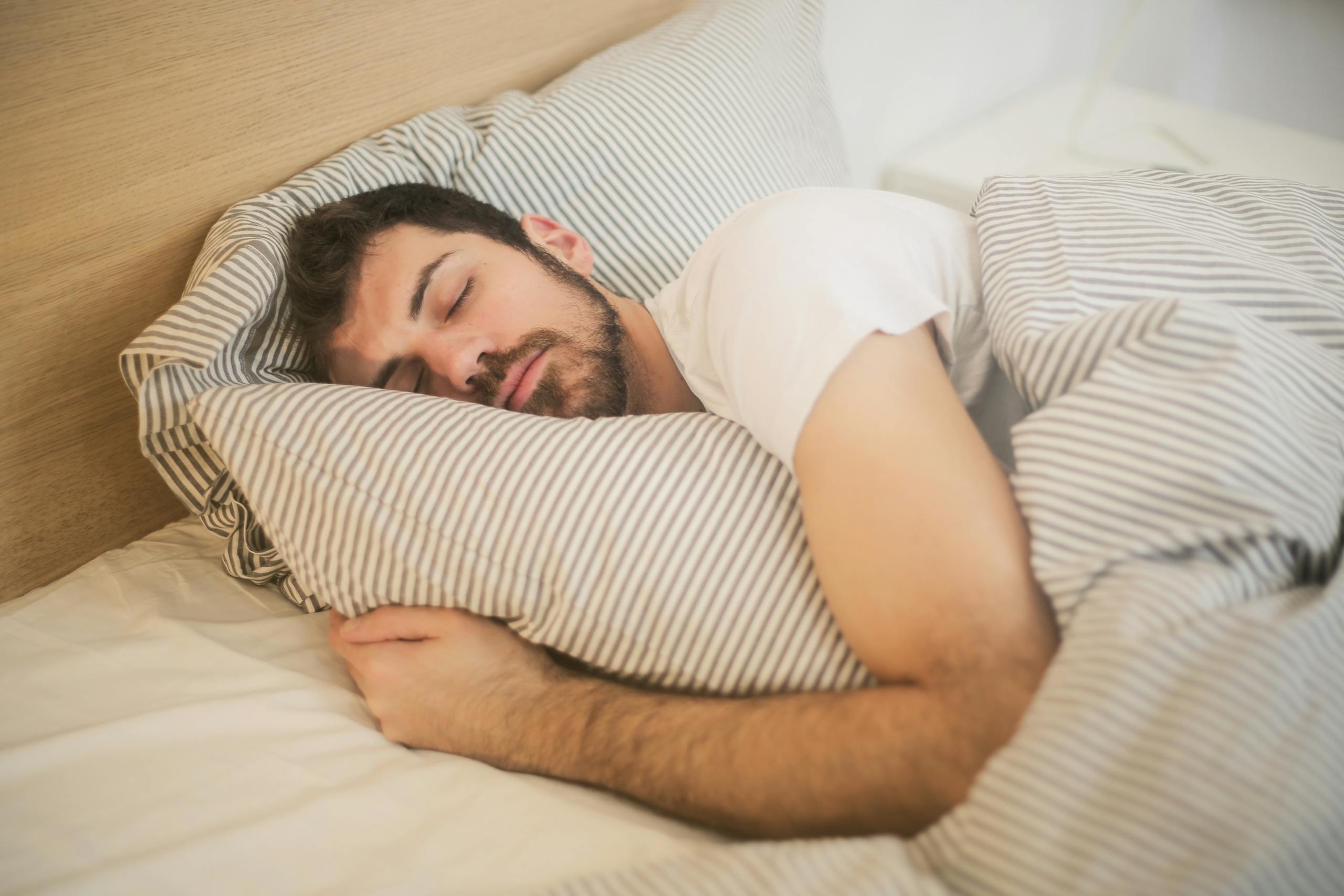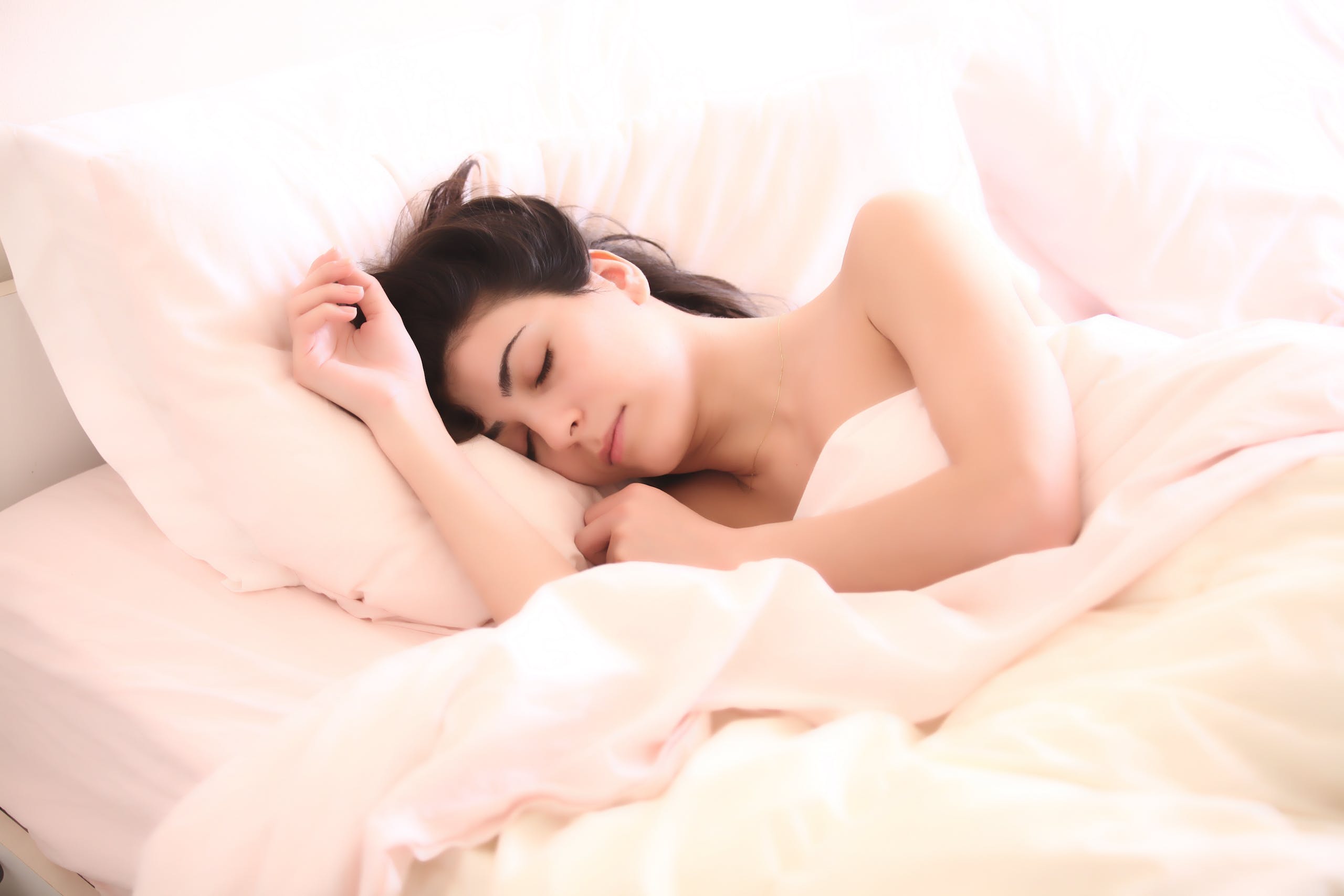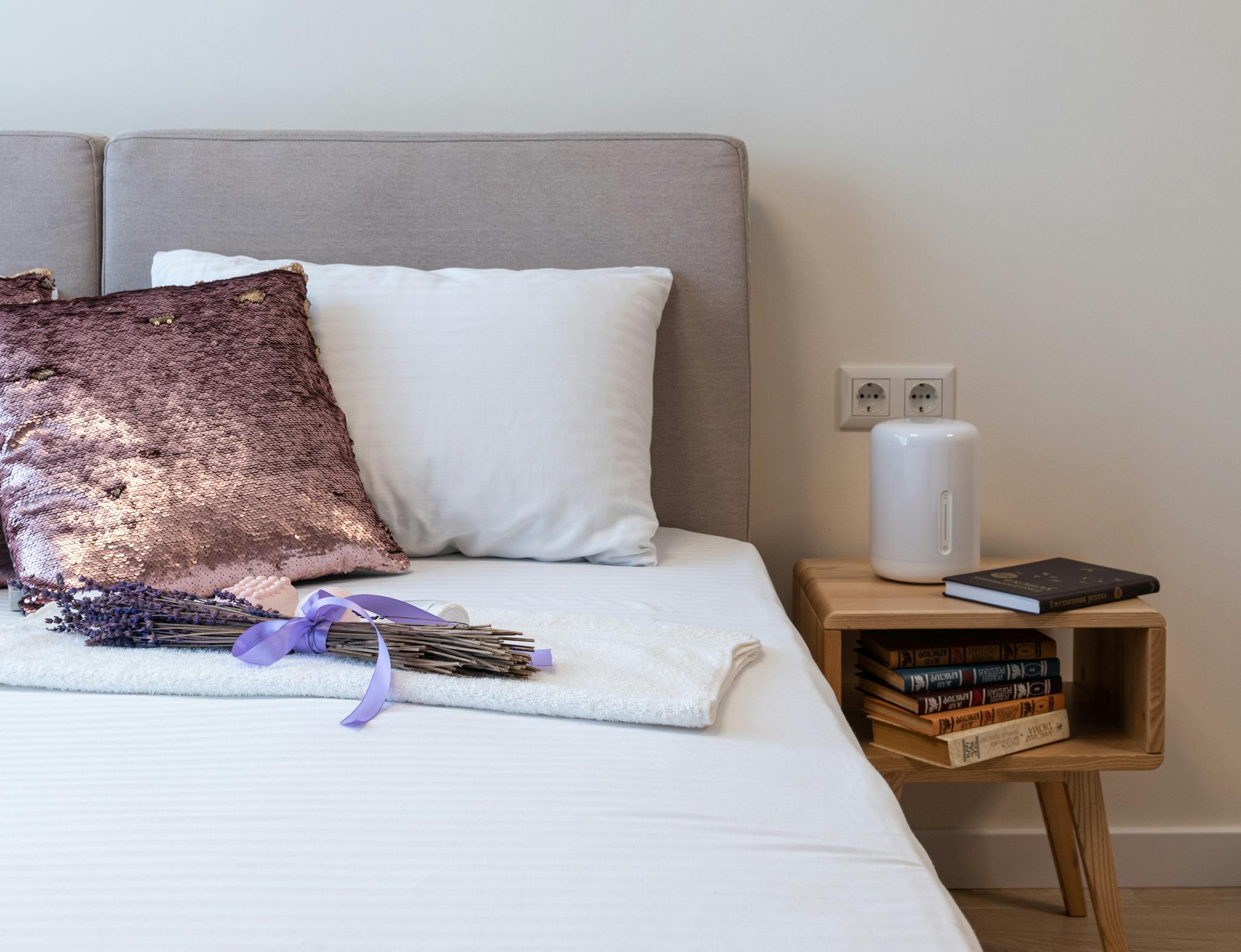Sleep Hygiene: Tips For A Restful Night
There are some affiliate links below, but they are all products I highly recommend. For more info, view my disclosure here.
Are you having trouble getting a restful night’s sleep? You’re not alone. Poor sleep hygiene can lead to insomnia and other sleep issues.
Fortunately, there are steps you can take to improve your sleep hygiene. We’ll take a look at some tips and tricks to help you get a good night’s sleep, so you can feel your best during the day.
From creating a comfortable sleep environment to managing stress and anxiety, this article will provide you with some useful tips to help you get the restful sleep you need.
Let’s get started!
Establish a Sleep Routine
Establishing a consistent bedtime routine can help you relax and drift off to a peaceful slumber. It’s important to establish a set time to go to bed and wake up each day, even on weekends and holidays. This will help your body create a natural sleep cycle.
To create a routine that works for you, start by setting a consistent wake-up time and try to stick to it. If you find yourself having difficulty getting out of bed, try setting an alarm to help you stay on track.
Once you have established your wake-up time, you can begin to create the rest of your sleep routine. Avoid using screens right before bed, as the blue light can disrupt your body’s natural sleep cycle. Instead, try reading a book, doing yoga, or listening to calming music. A warm bath or shower can also help you relax before bed.
If you find yourself having trouble falling asleep, try focusing on your breathing and counting your breaths. This can help to relax your mind and body and make it easier to drift off. If your mind is too active, try writing down your thoughts or worries in a journal before bed. This can help to clear your mind and give you some peace before you drift off.
It might take some time to find a sleep routine that works for you, but once you do, you’ll be more likely to wake up feeling rested and energized. Adopting a sleep routine can help to improve your overall health and well-being.

Create a Comforting Sleep Environment
Creating a peaceful environment for yourself each night can really help you unwind and get ready for a good night’s rest.
Start by setting the temperature to something comfortable; if it’s too hot or too cold, it can be difficult to fall asleep.
You should also make sure the room is dark and quiet. Blackout curtains can help you block out the light. Try using a white noise machine or earplugs to block out any outside noise.
Make sure your bed is comfortable, too. A supportive mattress, pillow, and bedding can help you get a good night’s sleep.
Try to keep the room clutter-free, as it can be distracting. Rearrange any furniture and keep the area around your bed neat and tidy.
Taking the time to create a calming, comfortable environment can make all the difference when it comes to getting a good night’s sleep.

Avoid Caffeine and Alcohol
Cutting out caffeine and alcohol right before bedtime can make a huge difference in your sleep quality. Caffeine is a stimulant and can keep you up, while alcohol is a depressant and can actually make it harder for you to stay asleep, even though it can make you drowsy when you initially drink it.
It’s best to avoid both caffeine and alcohol in the evening and late afternoon, especially if you have difficulty falling or staying asleep. Instead, consider incorporating soothing and calming activities into your nightly routine. For example, take a warm bath, listen to relaxing music, or read a book. This can help you relax and prepare your body for sleep.
If you still find yourself having difficulty sleeping, try using essential oils. These essential oils can provide a calming and relaxing atmosphere that can help you drift off to sleep. It’s also important to establish a regular sleep schedule. This means going to bed and waking up at the same time every day. This helps your body adjust to a regular sleep pattern, which is important for your overall health and well-being.
Try to limit your naps during the day and make sure they are short. Long naps can interfere with your sleep at night. Make sure you have a dark, comfortable, and quiet bedroom. You should also avoid looking at screens, such as televisions, phones, and computers, before bedtime. The light emitted from these devices can make it harder to fall asleep.
Creating a calming sleep environment can help you get a restful night’s sleep.
Limit Blue Light Exposure
Limiting your blue light exposure before bed can make a huge difference in the quality of your sleep. Blue light is emitted from screens, such as cell phones, tablets, TVs, and computers. When you look at these screens, your brain is tricked into thinking it’s still daytime and can have a hard time winding down for sleep.
To limit your blue light exposure, it’s best to turn off all screens at least an hour before bed. If you must use a device before bed, consider investing in blue light-blocking glasses or downloading a blue light filter on your device. You can also consider turning off any lights in your bedroom and instead opt for low lighting. Try placing a lamp in the corner of the room and using a dimmer switch or using a Himalayan salt lamp to create a warm, soothing atmosphere. This will help your body relax and prepare for sleep. It’s a good idea to reduce the temperature in your bedroom to a cooler temperature, as this will help your body naturally cool down, which is necessary for you to drift off to sleep.
To further reduce your blue light exposure, try avoiding all screens for at least an hour before bed. Instead, spend that time reading, journaling, or meditating. This will help your body and mind relax and prepare for sleep. Try establishing a regular bedtime routine, like taking a warm bath or shower, stretching, or listening to calming music. This will help your body recognize that it’s time to wind down and help you get to sleep more quickly.
By limiting your blue light exposure and establishing a healthy bedtime routine, you can ensure you get the restful sleep you need to function optimally during the day. Taking the time to prioritize your sleep hygiene can help you reap the benefits of a good night’s rest.

Exercise Regularly
Exercising regularly can have a profoundly positive effect on your energy levels and overall wellbeing, so make it a priority in your daily routine!
Whether it’s a brisk walk, a yoga class, or a quick HIIT session, any type of physical activity helps you to relax and de-stress after a long day. Regular exercise will help to keep your body in balance, improving your quality of sleep, and reducing the time it takes to fall asleep.
Research has also shown that regular exercise can help promote a deep and restful sleep, which is essential for feeling well-rested and energized the next day.
If you’re struggling to make time for regular exercise, try to add physical activity into your daily routine. Even something as simple as a 10-minute walk or stretching at your desk can make a difference. If you have more free time, try to get at least 30 minutes of physical activity most days of the week. This doesn’t necessarily have to be in one session, either. Accumulating short bouts of exercise throughout the day can be just as beneficial for your sleep and energy levels.
The type of exercise you choose is also important. Low-impact activities like yoga and tai chi can help reduce stress and anxiety, which can often interfere with a good night’s sleep. High-intensity activities like running and weightlifting can also have positive effects on sleep, but they may increase the time it takes to fall asleep. If you’re doing a high-intensity workout, try to do it earlier in the day.
Overall, exercise should be a part of your daily routine if you want to get a good night’s sleep. It can help to reduce stress, improve energy levels, and promote a deeper sleep. Try to find something that you enjoy and remember to be mindful of the type and timing of your workouts.
With regular exercise, you’ll be well on your way to better sleep hygiene and a more restful night.
Manage Stress and Anxiety
Now that you understand the importance of exercising regularly to improve your sleep hygiene, let’s look at how to manage stress and anxiety.
Stress and anxiety can be natural responses to the challenges life throws our way, but these feelings can also keep us up at night. To reduce stress and anxiety and get a better night’s sleep, there are several things we can do.
First, set aside time each day for self-care. Make sure to take breaks throughout the day to relax and unwind. This could include activities like reading, listening to music, going for a walk, or doing yoga. Spend time away from screens, and do something that brings you joy.
Next, practice mindful breathing and meditation. This can help to reduce anxiety and improve wellbeing. Start by focusing on your breathing and bring your attention to the present moment. If your mind starts to wander, gently bring it back to your breath.
Talking to a trusted friend or family member can be a great way to manage stress and anxiety. Talk about your worries and fears and ask for their support. Sometimes just talking about our worries can help us to feel better.
It’s important to take care of your sleep hygiene to ensure that you have a restful night.
Establishing a regular sleep routine, creating a comfortable sleep environment, avoiding caffeine and alcohol, limiting blue light exposure, exercising regularly, and managing stress and anxiety are all great ways to improve your sleep.
Taking the time to prioritize your sleep can make a huge difference in your overall wellbeing.
You’ll feel more energized, productive, and happy when you get the restful sleep you need.
So make sure you take the time to practice these tips and get the restful sleep you deserve.






